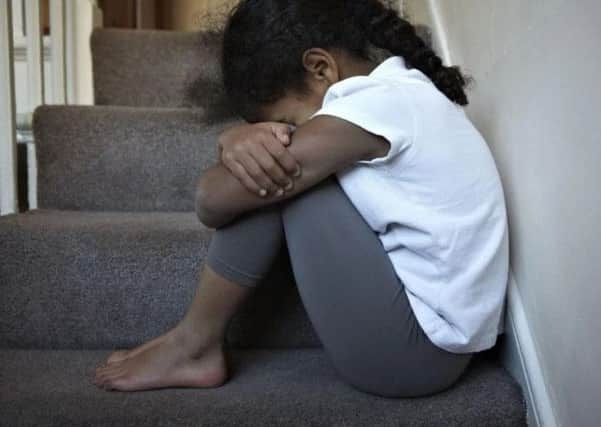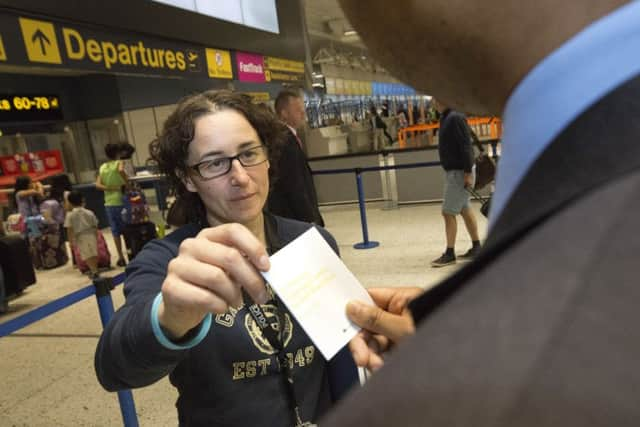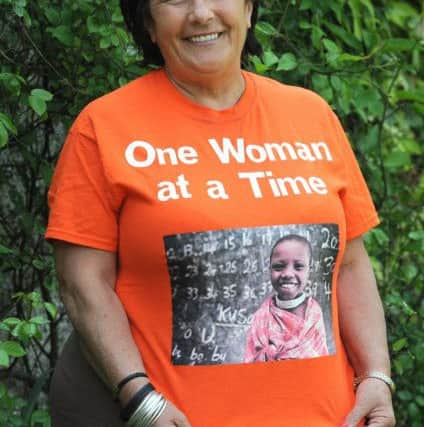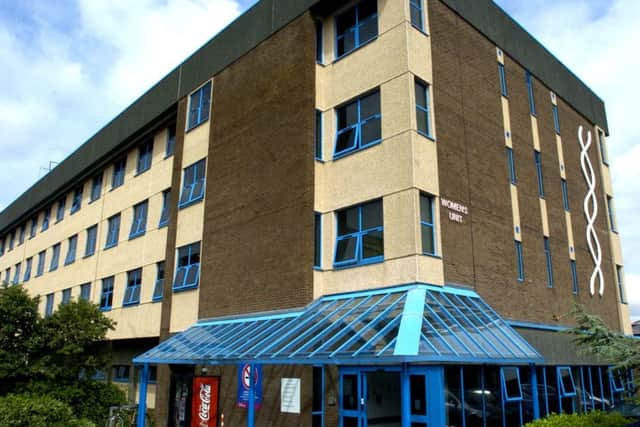Number of victims of female genital mutilation in the Lancaster and Morecambe district on the rise


Experts and campaigners are calling for increased awareness of female genital mutilation (FGM) warning signs among younger women and girls.
In 2018-19, between one and seven victims of FGM were seen by health services in the Morecambe Bay Clinical Commissioning Group area, NHS Digital figures show.
Advertisement
Hide AdAdvertisement
Hide AdOf those, at least one was having their injuries reported to the NHS for the first time.


Only approximate numbers are recorded in the data, to prevent identification of individual women.
FGM, where female genitals are removed, cut or injured for non-medical reasons, is illegal in the UK, and people carrying out or assisting with the procedure can be punished by up to 14 years in prison, even if it was abroad.
Most girls are cut before they turn 15, but are frequently not identified or treated by the NHS until they are pregnant - meaning they live with the condition for much of their adult lives.
Advertisement
Hide AdAdvertisement
Hide AdIn Morecambe Bay, all of the women seen in 2018-19 were aged between 18 and 29.


According to Janet Fyle, FGM policy lead at the Royal College of Midwives, many pregnant women are not treated until they are already in labour. They often require surgery before they can give birth.
Ms Fyle, a Sierra Leonean nurse and midwife, was honoured with an MBE in 2015 for her campaigning against FGM.
She said that the daughters of women with FGM are at serious risk of becoming victims themselves.
Advertisement
Hide AdAdvertisement
Hide AdShe said: “We need to have a much more open dialogue with communities that practise FGM, and think seriously about how we talk to women in those communities.


“The women need to make the link between their health and its relationship to FGM by themselves, and that will make them think - do I want this for my daughter?”
The National FGM Centre, a partnership between children’s charity Barnardo’s and the Local Government Association, has raised concerns that doctors and nurses may not recognise the warning signs of FGM.
Leethen Bartholomew, the centre’s head, said: “Health professionals are taught to routinely ask questions about HIV, and things like that, but that’s not the case with FGM.
Advertisement
Hide AdAdvertisement
Hide Ad“These women are presenting to health services with the warning signs, but the healthcare professionals are not making the connection, and we need to ask ourselves why that is happening.”
Mr Bartholomew called for more resources to train doctors and nurses to recognise the symptoms of FGM, and to collect more comprehensive data on the women and girls affected.
Warning signs that a woman has been a victim of FGM can be physical, such as repeat urinary tract infections and incontinence, but also include psychological problems such as depression and post-traumatic stress.
Across England, more than 6,000 victims were seen by NHS services over the year, with 4,120 having their injuries reported for the first time.
What is female genital mutilation?
Advertisement
Hide AdAdvertisement
Hide AdFGM is when a female’s genitals are deliberately altered or removed for non-medical reasons. It’s also known as ‘female circumcision’ or ‘cutting’, but has many other names.
FGM is carried out for a number of cultural, religious and social reasons.
Some families and communities believe that FGM will benefit the girl in some way, such as preparing them for marriage or childbirth.
However, FGM is a harmful practice that isn’t required by any religion and there are no health benefits.
It’s dangerous and a criminal offence in the UK.
Advertisement
Hide AdAdvertisement
Hide AdThere are no medical reasons to carry out FGM; it’s often performed by someone with no medical training, using instruments such as knives, scalpels, scissors, glass or razor blades.
Children are rarely given anaesthetic or antiseptic treatment and are often forcibly restrained.
It’s used to control female sexuality and can cause long-lasting damage to physical and emotional health.
FGM can happen at different times in a girl or woman’s life, including when a baby is new-born, during childhood or as a teenager, just before marriage or during pregnancy.
Advertisement
Hide AdAdvertisement
Hide AdThere are no health benefits to FGM. It can cause serious harm, including severe and/or constant pain, infections, such as tetanus, HIV and hepatitis B and C, pain or difficulty having sex, infertility, bleeding, cysts and abscesses, difficulties urinating or incontinence, organ damage and problems during pregnancy and childbirth.
Girls living in communities that practise FGM are most at risk. It can happen in the UK or abroad.
In the UK, the Home Office has identified girls and women from certain communities as being more at risk: Somali, Kenyan, Ethiopian, Sierra Leonean, Sudanese, Egyptian, Nigerian, Eritrean, Yemeni, Kurdish and Indonesian.
Children are also at a higher risk of FGM if it’s already happened to their mother, sister or another member of their family.
Advertisement
Hide AdAdvertisement
Hide AdIf you’re worried a child is at risk of or has already had FGM, you can call the NSPCC’s free, anonymous dedicated FGM helpline on 0800 028 3550 or email [email protected]
Helping women... One Woman at a Time
A Morecambe woman launched her own charity to help women after hearing about the issues they faced on a visit to Kenya in 2012.
Empowering women has been an integral part of Jean Anderson’s life for years in her role as a midwife, doula and advocate for natural birth.
But since 2012, when Jean travelled to Kenya as an observer with Beyond FGM, a charity fighting female genital mutation, she set up her own charity One Woman at a Time with the aim of identifying and assisting women of any age to achieve a helping hand in gaining education, training and employment to change their and their families’ futures.
Advertisement
Hide AdAdvertisement
Hide AdJean, who is a retired midwife of 35 years, lived in Uganda for a short while, as well as Zambia and Nigeria, and never knew FGM existed.
She said: “I went to Kenya in 2012 and while there, a lady called Margaret Lolimas became very sick after childbirth.
“I transported her to the local Kenyan hospital for more surgery with her husband and mother.
“Unfortunately three weeks later she died. I returned to the UK with the idea of teaching the tribal midwives care.
Advertisement
Hide AdAdvertisement
Hide Ad“On my return to Kenya, I then found the children of Margaret in dire straits, with the husband’s new wife taking precedence.
“I have since taken on the role of sponsoring her children after finding them malnourished and in need of support.
“The aim of my sponsorship was to prevent these two girls being cut and given away in early marriage to support the boys in the family.
“By the time they are educated, hopefully FGM will be not done in their area of the country.”
Advertisement
Hide AdAdvertisement
Hide AdIn each place in Africa that Jean lived, she would help a family.
She said: “In each area I’ve lived women just want a helping hand. Women in under-developed countries can be treated like cattle, they are sold and have no rights and no voice.
“The women do all the work; in many families the boys are educated but the girls aren’t. It’s not economical to help a girl.”
For more information about the charity or to donate, visit www.onewomanatatime.co.uk.
Call Jean on 07913 389009 if you want to help with fundraising or sponsoring a girl to get an education.